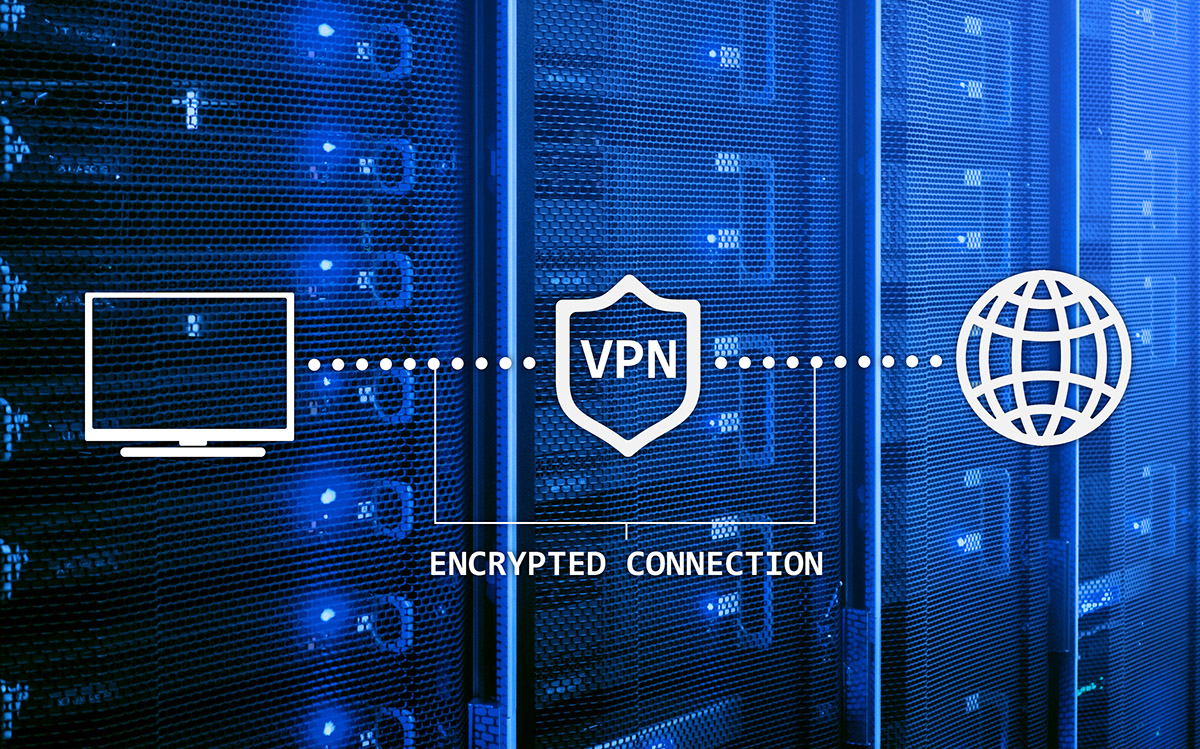VPN, short for Virtual Private Network, is a secure connection from a device to a network. The connection transmits data and prevents anyone tracking or monitoring from identifying the user by creating an encrypted tunnel between your device and a remote device. Simply put, the VPN adds an additional stopping point between your internet service provider and the rest of the internet that encrypts what you are browsing from other entities. The benefit of using this protection is a hidden IP, masked Identity, and secure location. Some VPNs may slow down your connection, and some may have IP leaks, WebRTC Leaks and DNS Leaks, but using a Virtual Private Network will protect your identity.
If it is your first time using a VPN, you must have questions such as are VPN-based ad blockers safe? What is the best VPN? What are the legal implications of using VPNs? And can you, or rather, should you use a VPN to watch Netflix or torrent?
What are the Legal Implications of Using a VPN?
The legality of using a VPN depends on your location. For example, if you are not doing anything illegal, using a VPN in the US, Canada, and the vast majority of countries is legal. In some areas where government control of media is much more closely monitored, using a VPN is a punishable offense. These nations include Russia, China, Turkey, North Korea, and the UAE.
How Would the Government Know that you are Using a VPN?
Law enforcement cannot track down communication or purchases made via a properly run VPN. To track down a violator, what would happen is, the police may contact your internet service provider to get details about your VPN provider, then they would approach your VPN provider with a warrant. Some VPN’s delete data automatically so they are able to comply with warrants and show the police nothing, others may keep your data and comply with the warrant. That is why it is vital that you read the end-user agreement when installing a VPN service. The end-user agreement tells you whether your VPN provider complies with law enforcement.
Breaching Website Terms of Service
Using a VPN to access sites like Netflix, Hulu, and Amazon is not illegal. However, the action may violate the website’s terms of service. In this scenario, it is up to the website. They may ban your connection. But when using a VPN, you can always change your location to a different part of the planet.
Can you be Fined or Prosecuted for Using a VPN?
If you are not using a VPN service for illegal activities, you need not worry about fines or prosecution.
“From now on, the only place you’ll be watching movies without having to buy a ticket is jail.” Deputy director Gratman (The Simpsons -Steal this Episode). That quote points to how serious law enforcement in America is about prosecuting piracy. Included in a recent 5000-page Spending bill for COVID relief, congress passed a new law that punishes streamers who pirate copyrighted content by up to 10 years in prison.
The new law applies to you if you stream copyrighted material for profit. On top of the decade behind bars, you may also get a fine. The point being, if you illegally download a movie, do not stream it or share it. If you must, use a reliable VPN, Virtual machine, or the TOR network.
What if I use a VPN on VPS?
Running a VPN on a VPS has some risks. You may receive a copyright infringement notice or a fine. Remember, VPS stands for Virtual Private Server, and some services keep track of your activities.
Also -if you are Using Qbit torrents or other torrenting apps for “research,” set up a split tunnel (VPN port) for the app to run through.
What is the Best VPN for Torrenting
As mentioned, VPNs may slow down your connection. Consequently, if you must torrent large amounts of data, it is advisable to test your VPN. Use Trace Route Tools to get a visual representation of the network route and time to target . To test bandwidth, use an online service of your choosing.
If you Google “VPN or Virtual Private Network” -the result page will be full of ads, recommendations, and plenty of versus articles. So, the question becomes, what is the best VPN service?
To answer your question, we must list the factors that make a good VPN. That is.
- Ease of use.
- Speed: avoid sluggish VPNs, ones that slow down your computer, and ones that come with add-ons or browser redirects.
- Security: check the end-user agreement before installation and avoid installing third-party apps or recommended bloatware.
- Accessibility: can you access what you want -no matter your location?
- Support: can you contact the service provider if there is an issue?
- Peer-to-peer/P2P connection: is the service compatible with peer-to-peer networks?
- Privacy: the quality of encryption determines your safety.
- Static IP: Can you acquire a dedicated IP address?
- Price: paid for VPNS are more secure than free services.
Because the internet is full of influencers and advertisers pushing affiliate programs it’s hard to find the best VPN. We recommend using ProtonVPN as it does not offer an affiliate program, has an amazing honesty policy, and some really great features.
When torrenting, you do not rely on centralized servers. Instead, you download files from anonymous sources. That is why it is crucial to find a VPN with P2P connections. But, on a P2P network, your activity is public, meaning someone may trace your activity. To prevent intrusion, what you need is a dedicated torrenting VPN. A good torrenting VPN offers good connection speeds, security, split tunneling, and a kill switch. A kill switch is there to protect you if the VPN fails. It shuts off the connection preventing any leaks that may trace back to you.
If you aren’t using protonVPN then we recommend taking advantage of free trials most service providers have on offer. If you find one that works, feel free to share it in the comments section.
NB* We do not encourage or condone pirating or torrenting copyrighted material. This article intends to assist legitimate torrent users.
Is it safe to Pirate with a VPN?

Yes, it is safe to pirate or –watch Netflix with a VPN -the reason being- your VPN hides your IP. But remember, nothing is foolproof, hence it is always a good idea to add a layer of protection. That means turning on your firewall and virus protection. The country you are in also matters. If you are in a country like America, you should consider torrenting on a virtual machine using VPN.
Note: torrenting on a virtual machine may be slower.
Is using VPN 100% Safe?
No, traffic patterns and malware may leak your information to a third party. That makes it vital to ensure that your VPN provider is trustable and that your system is malware-free. There is also the issue of cookies. Cookies are small files sent to your system by a website you visit.
Cookies allow a site to remember bits of information about you. If you forget to clear cookies after turning off the VPN, that site and others may continue to track you. What happens is, cookies create a unique ID for each user. These IDs collect your search history, previous visits, and online habits.
To block cookies, you may turn on “Do Not Track Feature” on your browser. You may also install browser add-ons such as Privacy Badger to stop third-party trackers and vendors from secretly collecting your information.
Ever notice that when you search for an item, your browser begins recommending ads for that item? Today, data harvesting is big business, collectors use it to target ads, statistics, machine learning, and some sell your data. VPNs may protect you from data harvesting companies, but only up to a certain level.
Why Install VPN Then?
Most people install VPNs to avoid government surveillance and censorship. You may also use it to torrent, watch movies/anime from another geographical location, or protect your data on public Wi-Fi.
Can a WIFI Owner See my Device if I use a VPN?
It depends on the quality of service you are using. If your VPN leaks data, a public WIFI admin may see your HTTP activities and history. When using a quality VPN, the encrypted tunnel between servers and your device prevents intrusion. Why is using VPN on a public network important?
You must understand that Public Wi-Fi is not safe. The risks include identity theft, man-in-the-middle attacks, eavesdropping, packet sniffing, session hijacking, and malware distribution. Malware, and ransomware, may be used by attackers to hold your data hostage.
The point is, do not use public Wi-Fi without protection. Furthermore, before you download or install a VPN service, we recommend checking customer complaints or issues. If you notice anything about DNSLeaks or something similar, avoid that app. You may also test the app for leaks after downloading.
How Much Online Attention are you Bringing to Yourself?
Google, Facebook, and almost all the sites you visit collect your data. The question is, how much attention are you bringing to yourself?
Your government aims to protect itself and its citizens from threats both offline and online. Consequently, any online activity on social media, Chan/Kun sites, may put you on a watchlist. The same is true if someone reports your activity. To avoid problems with the law, you should bring as little attention as you can to yourself. That means avoiding doing illegal activities online, avoid communicating or visiting unlawful sites, and -if you must pirate copyrighted material, use a VPN.
How do you protect yourself from the government, hackers, and spies?
First, note that almost all governments collect data in mass, the US uses Mass Surveillance, the UK Snooper’s Charter, and China has the Great Firewall. That means all your devices are under surveillance. If you bring too much attention to yourself through your browsing and download habits, you may end up on a watch list.
How to Keep Browsing Private
Use a VPN or Tor. Tor is an open-source browser that defends you against surveillance, coupled with a torrenting VPN, and you have all the protection you need. There is also the issue of common sense.
If what you have downloaded may get you into legal trouble, do not distribute or stream that content. Furthermore, do not brag about your torrenting online or do the following:
- Do not overshare on social media.
- Your location, address, online activity, or where you are going should be kept private.
- Do not torrent without a VPN if you are in the US.
- VPNs work better than fake IP addresses.
- Avoid using public Wi-Fi on your work computer or any device containing any sensitive data.
- Streaming or sharing copyrighted material will land you in trouble.
- Avoid add-ons, redirects, and cookies from dodgy websites.
In short: when online, prioritize your privacy. To guarantee privacy, you need a good VPN. Also, your online activity determines who watches you, meaning, if you are reckless with your cards, information, and bank accounts, you attract hackers and scammers. If you indulge in illegal activity such as streaming copyrighted material, you earn the government’s attention.
Expert tip: to ensure maximum online safety, turn on your VPN and Firewall or use a virtual machine or TOR Network. Also, avoid free VPNs and add-ons.
